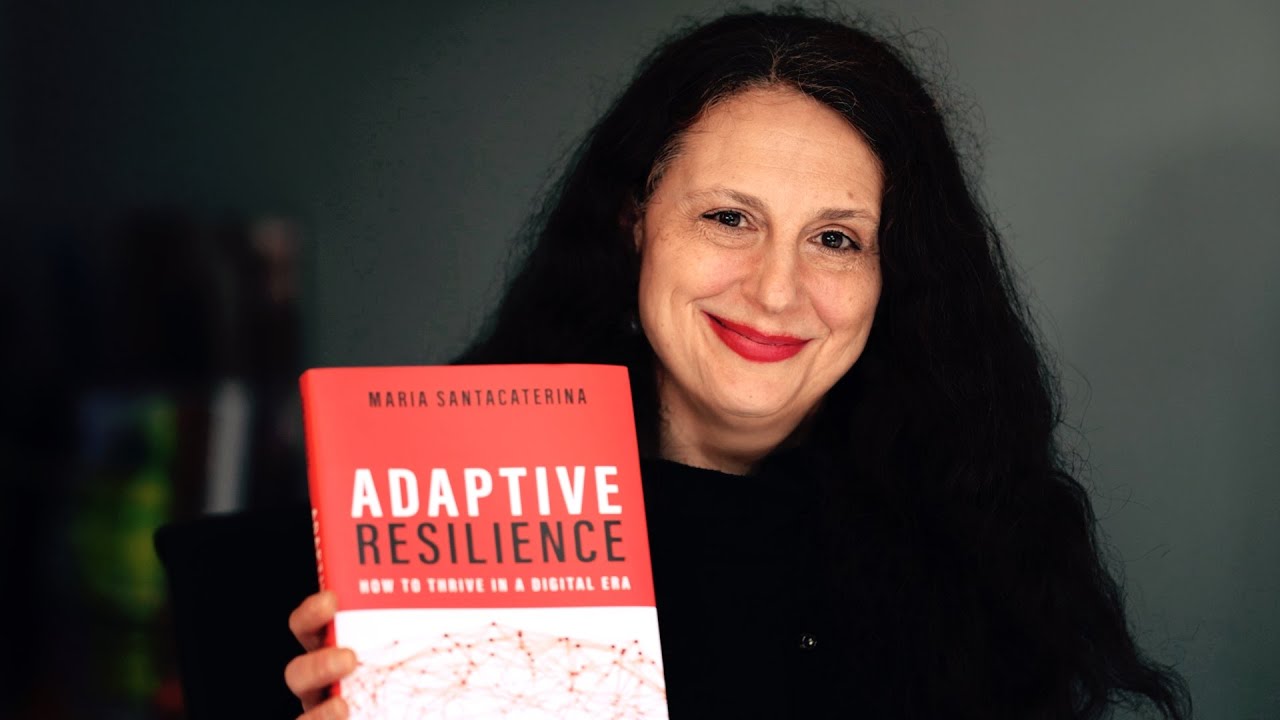Maria, an expert in the humanities and international relations, discusses her book “Adaptive Resilience,” emphasizing the need for responsible digital business transformation that enhances rather than dictates human behavior. She argues that while AI can assist in various tasks, it cannot replace the intrinsic human qualities of intelligence, creativity, and emotional complexity, advocating for a balanced, ethical approach to technology integration.
In the video, the speaker, who has a background in the humanities and international relations, discusses the implications of artificial intelligence (AI) on society, particularly in the context of business transformation and human interaction. They emphasize that technology, while a powerful tool, can also create significant challenges in terms of social impacts and environmental concerns. Their book, “Adaptive Resilience”, serves as a strategic blueprint for how enterprises can reinvent themselves in the face of digital transformation, highlighting the importance of vision, leadership, governance, and the need to preserve human values and life.
Throughout the discussion, the speaker argues against the mechanization of human experience and the oversimplification of life into algorithms. They assert that human intelligence is complex, adaptive, and continuously evolving, which cannot be captured by AI systems. The speaker emphasizes the importance of understanding the nuances of human emotions, instincts, and the relational dynamics that define our interactions. They critique the notion that AI can replicate human creativity and intelligence, pointing out that machines lack the ability to feel, anticipate, or engage in meaningful relationships.
The speaker raises concerns about the growing reliance on AI in decision-making processes, particularly in sectors like healthcare and hiring. They argue that the standardization of processes through AI often leads to a loss of individual agency and depth of understanding. The conversation touches upon the ethical implications of using AI, suggesting that moral reasoning should be at the forefront of technology development rather than merely focusing on efficiency or profit. The speaker calls for a more human-centric approach to technology, advocating for systems that support rather than constrain human potential.
Additionally, the speaker discusses the dangers of categorization and how it can lead to a loss of individuality and creativity. They stress that while categorization may be useful in scientific contexts, it can be detrimental when applied to human experiences and relationships. The conversation underscores the importance of diversity and the need for organizations to foster an environment where individuals can express their unique perspectives without fear of judgment or conformity. Embracing subjectivity and personal experience is seen as essential for genuine understanding and connection.
In conclusion, the speaker emphasizes the need for a paradigm shift in how society approaches technology, advocating for a balance between objective and subjective understandings. They argue that we must recognize our interconnectedness and the organic nature of human relationships to create systems that truly benefit humanity. By fostering environments that encourage creativity, critical thinking, and genuine communication, we can unlock new possibilities for growth and innovation, ultimately leading to a more resilient and adaptive society.
Maria Santacaterina’s LinkedIn
POD: CAN MACHINES REPLACE US? AI vs Humanity - Maria Santacaterina
TOC
00:00:00 - Intro to Book
00:03:23 - What Life Is
00:10:10 - Agency
00:18:04 - Tech and Society
00:21:51 - System 1 and 2
00:22:59 - We Are Being Pigeonholed
00:30:22 - Agency vs Autonomy
00:36:37 - Explanations
00:40:24 - AI Reductionism
00:49:50 - How Are Humans Intelligent
01:00:22 - Semantics
01:01:53 - Emotive AI and Pavlovian Dogs
01:04:05 - Technology, Social Media and Organisation
01:18:34 - Systems Are Not That Automated
01:19:33 - Hiring
01:22:34 - Subjectivity in Orgs
01:32:28 - The AGI Delusion
01:45:37 - GPT-laziness Syndrome
01:54:58 - Diversity Preservation
01:58:24 - Ethics
02:11:43 - Moral Realism
02:16:17 - Utopia
02:18:02 - Reciprocity
02:20:52 - Tyranny of Categorisation
Interviewer: Dr. Tim Scarfe
